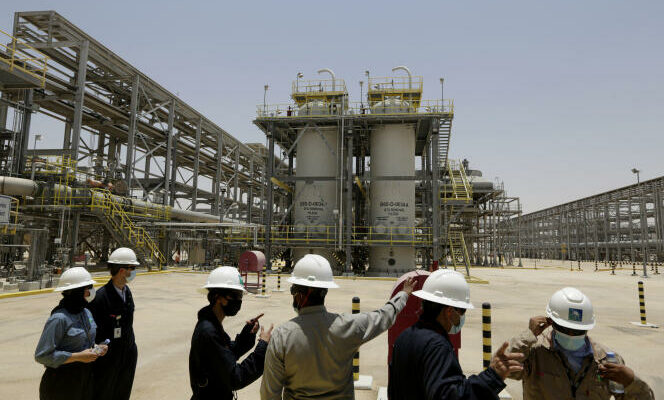From the stated ambition to achieve “zero carbon footprint” in the futuristic city Neom, under construction on the northern borders of Saudi Arabia, to the regeneration of fauna and flora in the future seaside resorts of the Red Sea, the fight against global warming is the new leitmotif of Saudi megaprojects . The kingdom, which launched its modernization project in 2016 with the “Vision 2030” plan, now combines economic diversification, energy transition and environmental concern. But, to the great dismay of climate experts, Riyadh intends to position itself as a global player in clean energy without limiting its hydrocarbon production.
Until COP26, in Glasgow in 2021, the Gulf oil powers had earned a reputation for“climate obstructionists”, opposing any questioning of fossil fuels. Following in the footsteps of Abu Dhabi, Riyadh has since joined efforts in favor of the climate, with its “Saudi Green Initiative” plan. The kingdom promised to achieve the goal “ net zero emissions » in 2060, to put the public oil giant Aramco on the path to carbon neutrality by 2050, to generate 50% of its electricity from renewable energies in 2030 and to plant 10 billion trees.
Saudi Arabia is now calling for climate objectives to prioritize not “produce less” of hydrocarbons, but the “produce cleaner”. The environmental imperative is taken with increasing seriousness in this desert country particularly exposed to the effects of climate change, but, “it is the economy that is the driving force behind the energy transition initiated by Riyadh”writes the energy expert Manal Shehabi for the Carnegie think tank (Washington). Anticipating a future decline in global demand for hydrocarbons, and at the same time a collapse within twenty years of production in the United States and Russia, the kingdom wants “safeguard hydrocarbon exports while generating new export revenues necessary to maintain political balance, the role of the State, and the financing of socio-economic development”analyzes the expert.
Aramco’s unprecedented annual profit
Riyadh is focusing its efforts on ambitious export-oriented energy transition projects, such as carbon capture and reduction technologies and clean hydrogen – both technologies still in the making – but its own transition is moving slowly. The Climate Action Tracker, a group of experts specializing in the evaluation of climate policies, thus estimates “very insufficient” the objectives and policies implemented by Saudi Arabia in accordance with the 2015 Paris Agreement, which plans to limit temperature rise below 2°C and, if possible, to 1.5°C.
You have 55% of this article left to read. The rest is reserved for subscribers.
